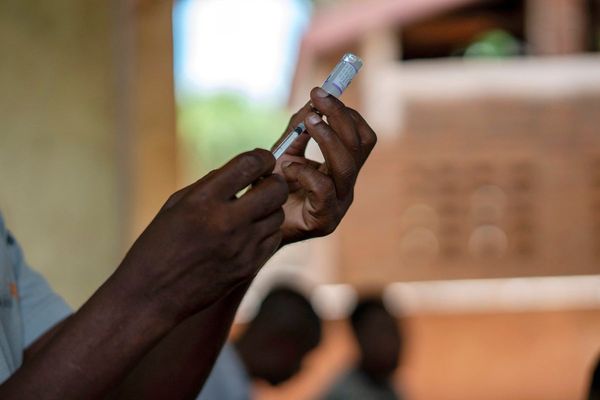What's worse than missing out on the five stocks driving the entire S&P 500 this year? Owning the ones that are dragging it down.
Just 10 lagging S&P 500 stocks this year, including Charles Schwab, Pfizer and Johnson & Johnson, shredded more than $300 billion in shareholder wealth this year, says an Investor's Business Daily analysis of data from S&P Global Market Intelligence and MarketSmith. These losses especially sting since the S&P 500 itself is up 8.2% this year — making investors $2.5 trillion richer.
But if you own the wrong stocks, unfortunately, your portfolio is headed in the wrong way.
"The S&P 500 is coming in hot to (first-quarter earnings season). Over the last month, the index has amassed over a 5% return, marking one of the biggest rallies into a reporting period since 2000," said Adam Turnquist, chief technical strategist for LPL Financial. "Can the rally continue?"
Losers Yanking Down The S&P 500's Rally
The S&P 500 is up more than 8% this year. And it's easy to think everyone's a winner. But that's hardly the case.
So far this year, 203 stocks in the S&P 500 are down. That means more than 40% of the stocks in the popular index are lower now than where they started the year. And some of the declines are painful. More than 60 S&P 500 stocks dropped more than 10% this year.
All this means that much of the S&P 500's gains are due to just a few massive winners. If you look at the whole market, the average S&P 500 stock is only up 3.5%, or less than half of the index' rise.
And much of that's due to some massive losers.
Assessing The S&P 500's Financial Damage
It's easy to blow off some of the S&P 500's biggest losers. Yes, First Republic Bank is the worst S&P 500 stock. It's down nearly 90% this year. But the stock is so tiny, now worth just $2.4 billion, it's not really a factor for the S&P 500.
It's a much different story with financial juggernaut: Schwab, though. The stock isn't down as much as First Republic, losing just 37% of its value this year. But we're talking about a $97 billion company in this case. When a stock of this size drops by this much, there's a much larger impact. So far this year, investors lost more than $60 billion in market value. That's three times more than investors lost on First Republic so far this year.
Health Care Headaches
Following financials, the sector handing investors the biggest losses this year is health care. It's a little ironic. Investors scurried into health care stocks in late 2022, figuring they'd offer safety from a recession.
And yet, with the recession always "six months away," the safety trade in health care is falling flat. Half of the worst losers in the S&P 500 this year are health care stocks. Pfizer, the leader in the Covid-19 vaccine that got the world back to work, is down nearly 20% this year. That decline wiped away $55 billion in market value.
But Pfizer is far from the only health care play not panning out this year. Johnson & Johnson, plagued by litigation over talc allegations, is off 6.2% this year. That might not sound like much, but when you're talking about a company worth $462 billion coming into the year, the loss extracted more than $28 billion from portfolios.
And then there's the nearly 19% drop in CVS Health. That erased more than $25 billion in shareholders' wealth this year.
Seeing such a huge gap between the winners and losers in the S&P 500 is another reason to follow the leaders.
Biggest S&P 500 Market Value Losers This Year
| Company | Ticker | Year-to-date % ch. | Market value loss ($ billions) | Sector |
|---|---|---|---|---|
| Charles Schwab | -36.8% | -$59.7 | Financials | |
| Pfizer | -19.6% | -$55.2 | Health Care | |
| Johnson & Johnson | -6.2% | -$28.7 | Health Care | |
| CVS Health | -18.7% | -$25.4 | Health Care | |
| Cigna | -21.9% | -$24.4 | Health Care | |
| UnitedHealth Group | -4.6% | -$23.5 | Health Care | |
| Home Depot | -6.6% | -$23.1 | Consumer Discretionary | |
| Bank of America | -8.3% | -$22.7 | Financials | |
| Chevron | -4.6% | -$22.5 | Energy | |
| First Republic Bank | -89.2% | -$19.8 | Financials |
Sources: S&P Global Market Intelligence, IBD
Follow Matt Krantz on Twitter @mattkrantz







